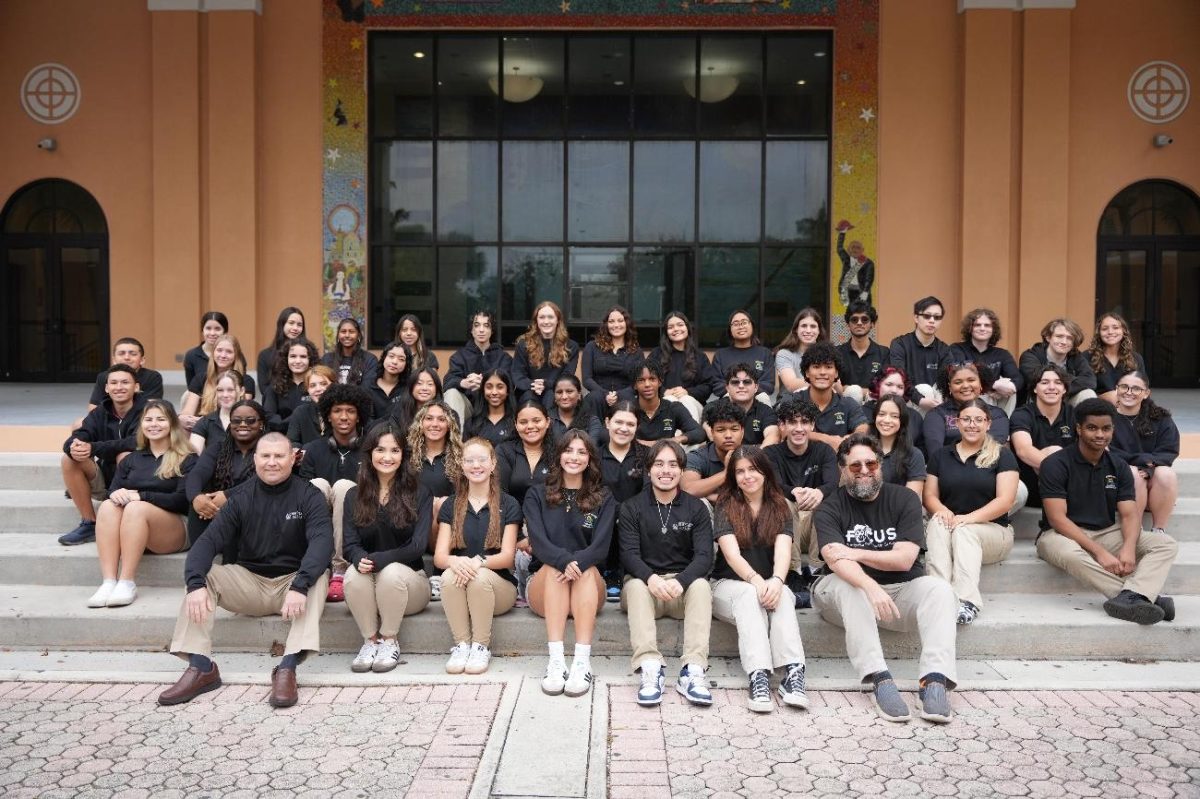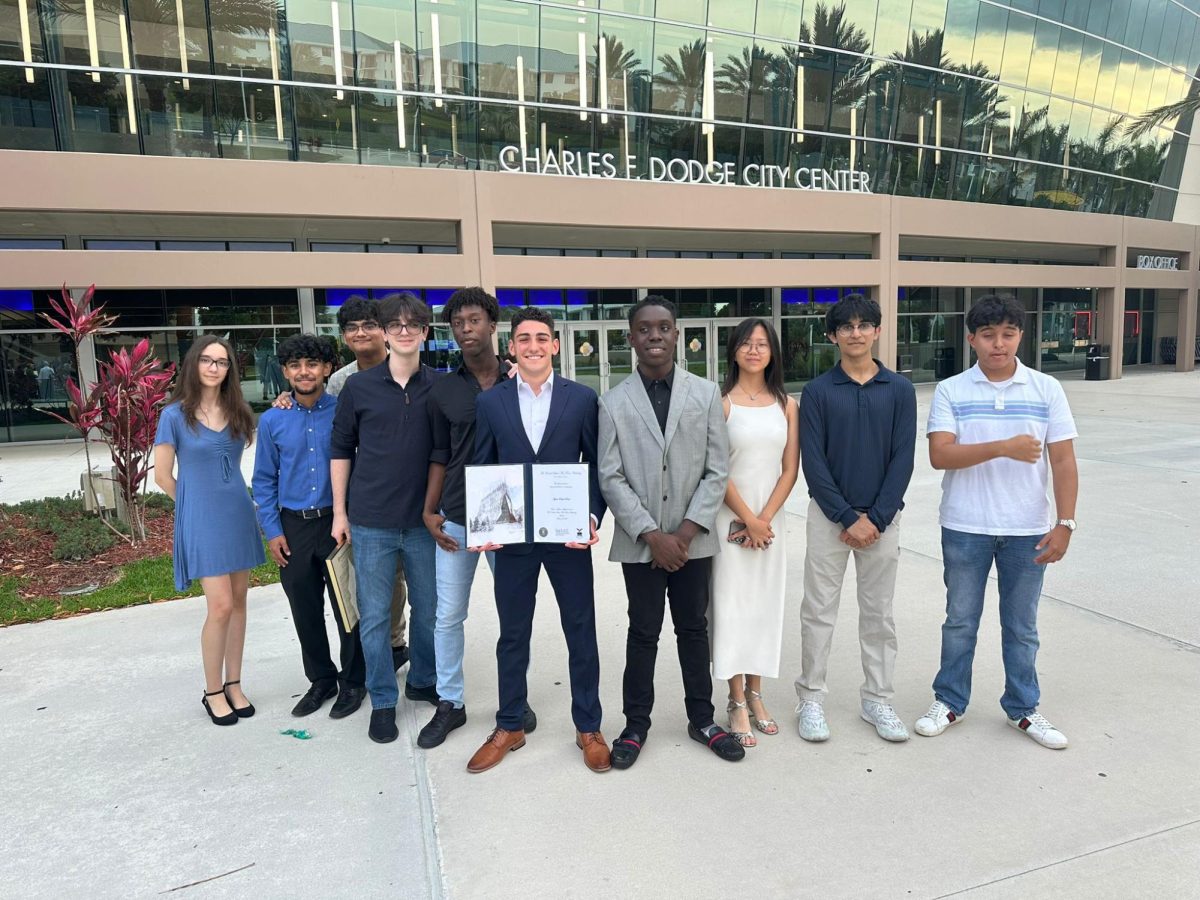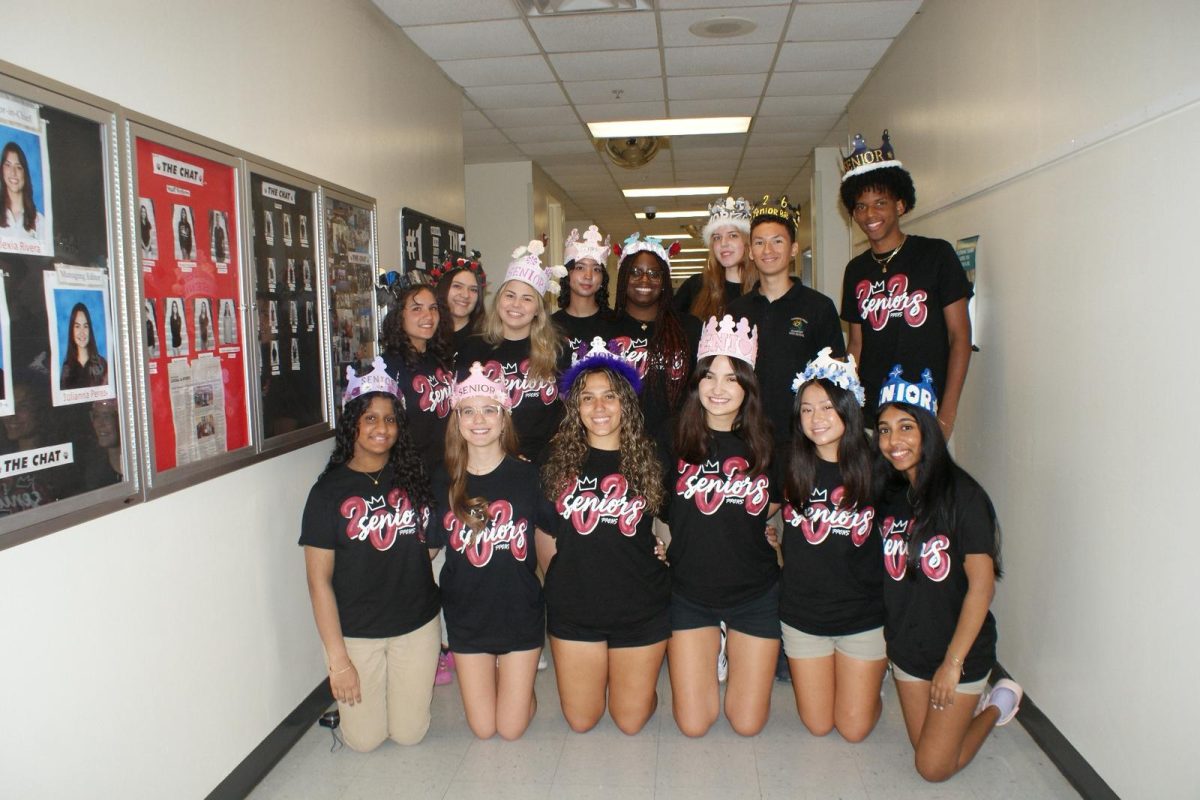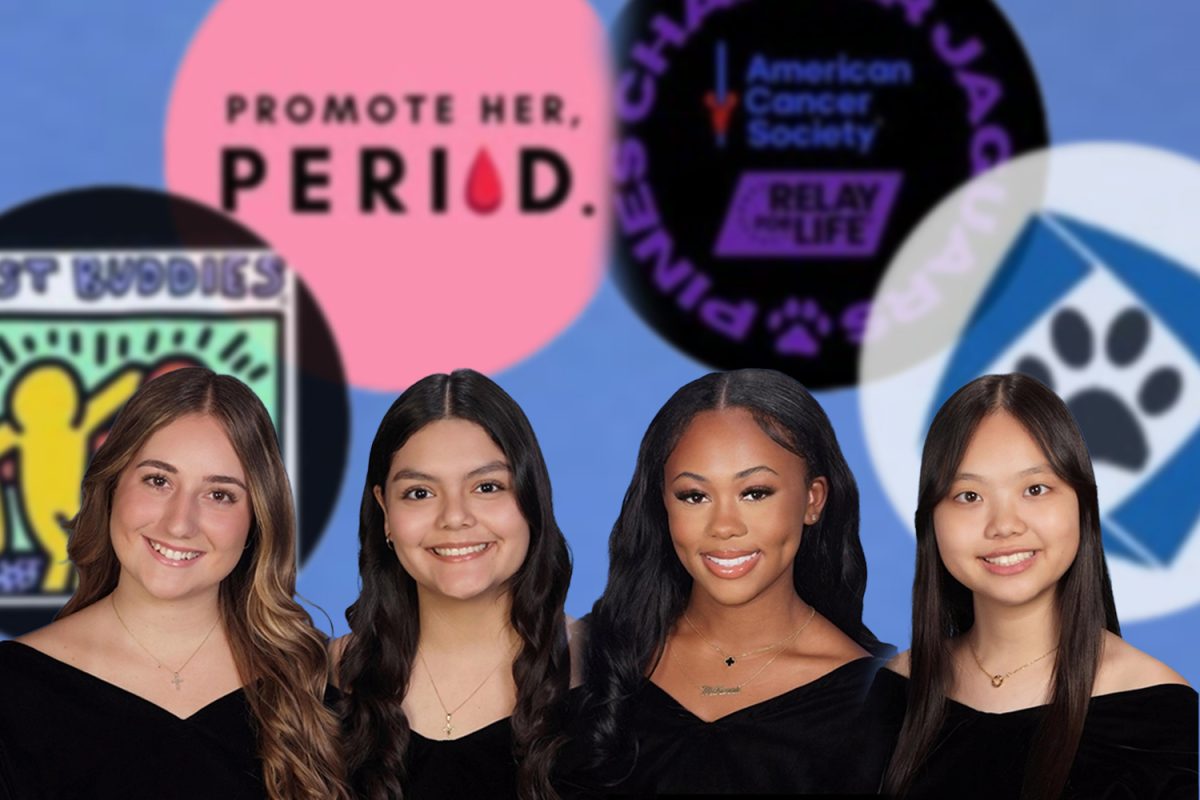On November 19th, what sounded like an emergency, was actually HOSA and the American Red Cross partnering to host a CPR training in the cafeteria. Both clubs, centered around health and medical safety, joined forces to teach members how to administer hands-on CPR in case of cardiac arrest.
Sophomore and American Red Cross member, Sarah Braham, who attended the event on Tuesday, said: “In the case of real-life emergencies, especially in schools [where] anything can happen, it’s important to know how to perform CPR or life-saving techniques because it could be anyone–even the people around you–that [could need] emergency [help].” Braham, who experienced a situation in which someone needed CPR, noted how imperative it is to be able to administer CPR on the spot.
Junior Eri Fatimilehin, the American Red Cross’s president, spearheaded the event alongside HOSA’s senior president, Annabelle Acevedo. Fatimilehin explained that “[the Red Cross] wanted to allow… members to do something that they may have to do in their future career, but also because a big goal of ours this year was to collaborate with a big club at school.”
The American Red Cross, which was newly established this year by Fatimilehin, hopes to be more involved with the Charter community and eventually grow to be a prevalent club like HOSA. Through teamwork, this collaboration was able to bring attention to both medical-oriented clubs.
Together, both clubs contacted several CPR-certified people who were either affiliated with the American Red Cross Organization or in the medical field. One of these people, Steven Ortega, is Broward County’s Community Disaster Program Specialist in which he was able to attend the event and teach the members the correct CPR technique.
“It’s so important for kids to learn how to do this because of the fact that it can save a life,” he said. Ortega, who is a former teacher, highlighted that cardiac arrest is not a rare event: “Most cardiac arrests are going to happen at home, to somebody that you love, or to someone that you’re close to, so taking a few minutes to learn how to do hands-only CPR, can only make our community stronger,” Ortega exclaims.
Through their November CPR training, HOSA and the American Red Cross hope that members feel educated and comfortable administering CPR. At school, an often-hectic environment, hands-only CPR may be students’ only option if a classmate were to experience cardiac arrest. By being CPR-certified, students can effectively be able to diffuse a dangerous situation at any time.









